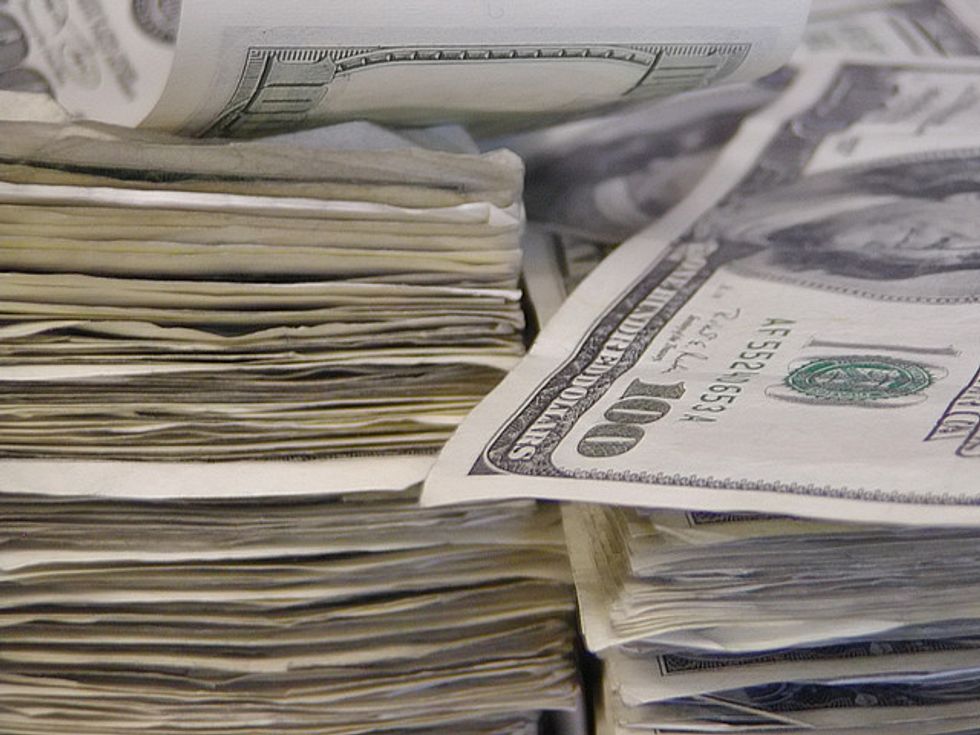
(Image via Damian Gadal/flickr)

The Better Business Bureau recently released a list of the top ten scams of 2015, just in time to warn consumers about scams they might encounter during the holiday season.
The BBB cautions that “there is a science to scams,” and that scammers will often work to establish a personal connection with their victims, provide fake sources to appear credible and play on their victim’s emotions.
“Scammers are all basically imposters,” Mary E. Power, the president and CEO of the Council of Better Business Bureaus, said in a statement. “Three of the top four scams reported to us are those that scare people with threats of arrest, law suits or other frightening actions. Scammers are pretending to be government agents, lawyers, debt collectors, police officers. They engage directly with you, so your best bet to avoid being scammed is to stop engaging. Hang up the phone, delete the email, shut the door.”
According to the organization, the top 10 scams of 2015 were:
1. Tax Scam: The victim receives a phone call from someone claiming to be with the Internal Revenue Service claiming that they owe money. They claim that if you don’t pay, there will be legal consequences, including arrest. They usually request payment in the form of a prepaid debit card or by wire. The BBB warns that these scammers often have a fake caller ID that makes them appear to be a government agency.
2. Debt Collection Scam: The victim receives a phone call from someone claiming that you have debt. Like tax scams, victims are threatened with legal consequences, and the caller ID may appear to be law enforcement.
3. Sweepstakes/Prizes/Gifts Scam: The scammers tell their target that they’ve won a prize in a sweepstakes with a call, letter, or email. They claim that in order to collect the prize, you must pay a fee to cover expenses associated with delivery, processing, or insurance, but the prize is not real. According to the BBB, “you should never have to pay money to claim a prize you have won.”
4. Tech Support Scam: Scammers contact their target and pretend to be computer technicians who have detected a virus or security threat on your computer. They tell the target that – for a fee – they can fix the problem remotely. They are actually hackers trying to steal money, passwords or damage computers with malicious software.
5. Government Grant Scam: Scammers tell their target that they have qualified for a government grant, but in order to receive the grant, you must pay a processing fee.
6. Advance Fee Loan Scam: An online ad leads a victim to a website. After filling out an application, the victim will receive an email or phone call that they have been approved for a loan, but that they must first a processing fee. The victim sends the fee for the nonexistent loan.
7. Credit Card Scam: The scammer pretends to be with the victim’s bank or credit card company. They claim that the victim is eligible for a lower interest rate, or that they need to check the legitimacy of a recent transaction, and ask the consumer to provide their credit card number and security code to “verify” their identity.
8. Work from Home Scam: Online job searching leads to an ad promising prospective “employees” that they can make a great deal of money while working from home. These fake jobs often involve “stuffing envelopes, posting advertisements, or shipping packages.” The scammers use sensitive personal information provided by applicants to steal their identities.
9. Fake Check/Money Order Scam: A scammer sends their victim an amount of money larger than what the victim is owed. The target is asked to deposit the check and wire the difference, but the check is fake and the victim is left without the money.
10. Lottery scam: The victim is told that they’ve won money in a foreign lottery, but must pay taxes and fees before receiving the prize. The BBB warns that “such lotteries are illegal. Sometimes you may be sent a check as partial payment, but the check will be counterfeit.”
---